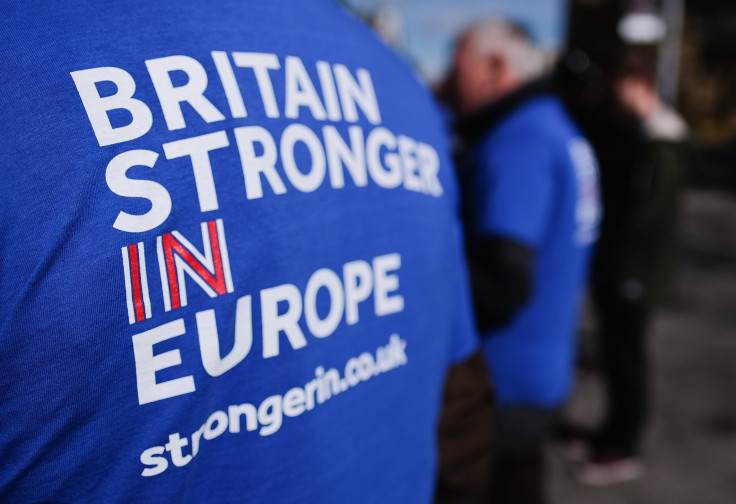UK Treasury Chief Lays Out Economic Cost Of Brexit, Says It Would Leave UK ‘Permanently’ Worse Off

If the U.K. decides to leave the European Union, it would be the “most extraordinary self-inflicted wound,” the British Chancellor of the Exchequer George Osborne said, in an article for the Times Monday. The article, published ahead of the release of a treasury report on the cost of the so-called Brexit, marks one of the strongest warnings the government has issued ahead of the June referendum.
“It is a well-established doctrine of economic thought that greater openness and interconnectedness boosts the productive potential of our economy. That’s because being an open economy increases competition between our companies, making them more efficient in the face of consumer choice, and creates incentives for business to innovate and to adopt new technologies,” Osborne wrote in the article. “Put simply: over many years, are you better off or worse off if we leave the EU? The answer is: Britain would be worse off, permanently so, and to the tune of 4,300 pounds [$6,100] a year for every household.”
Osborne is also expected to reiterate his warnings during a speech scheduled for Monday morning.
The U.K. is scheduled to hold a Brexit referendum on June 23. According to the International Monetary Fund (IMF), if the country decides to leave the 28-nation European Union, it could cause “severe regional and global damage.” The international lender, which recently slashed its forecast for global economic growth to 3.2 percent in 2016 — down from its previous estimate of 3.4 percent — also cut its U.K. growth forecast, to 1.9 percent in 2016 — down from its January estimate of 2.2 percent.
The British government, on its part, has also embarked on an aggressive campaign to convince voters to remain in the 28-nation bloc, warning of higher borrowing costs, drop in foreign investments and increase in trade barriers if the country votes to leave the EU.
According to the BBC, the treasury report examines three different scenarios of a post-Brexit deal. Of these, the “middle option,” which involves the U.K. ratifying a bilateral trade deal with the EU along the lines of the one the bloc currently has with Canada, would shrink the U.K. gross domestic product by 6 percent by 2030.
The lower estimate presumes that the U.K. would retain membership of the European Economic Area — the bloc’s single market — while the higher estimate presupposes a “clean break” from the EU, wherein the country’s trade ties with the bloc are governed by the rules laid out by the World Trade Organization.
“The Treasury analysis shows that under all plausible alternatives to British membership of the EU, we would have a less open and interconnected economy — not just with Europe but, crucially, with the rest of the world,” Osborne wrote in the Times article. “There would be less trade, less investment and less business.”
© Copyright IBTimes 2024. All rights reserved.












